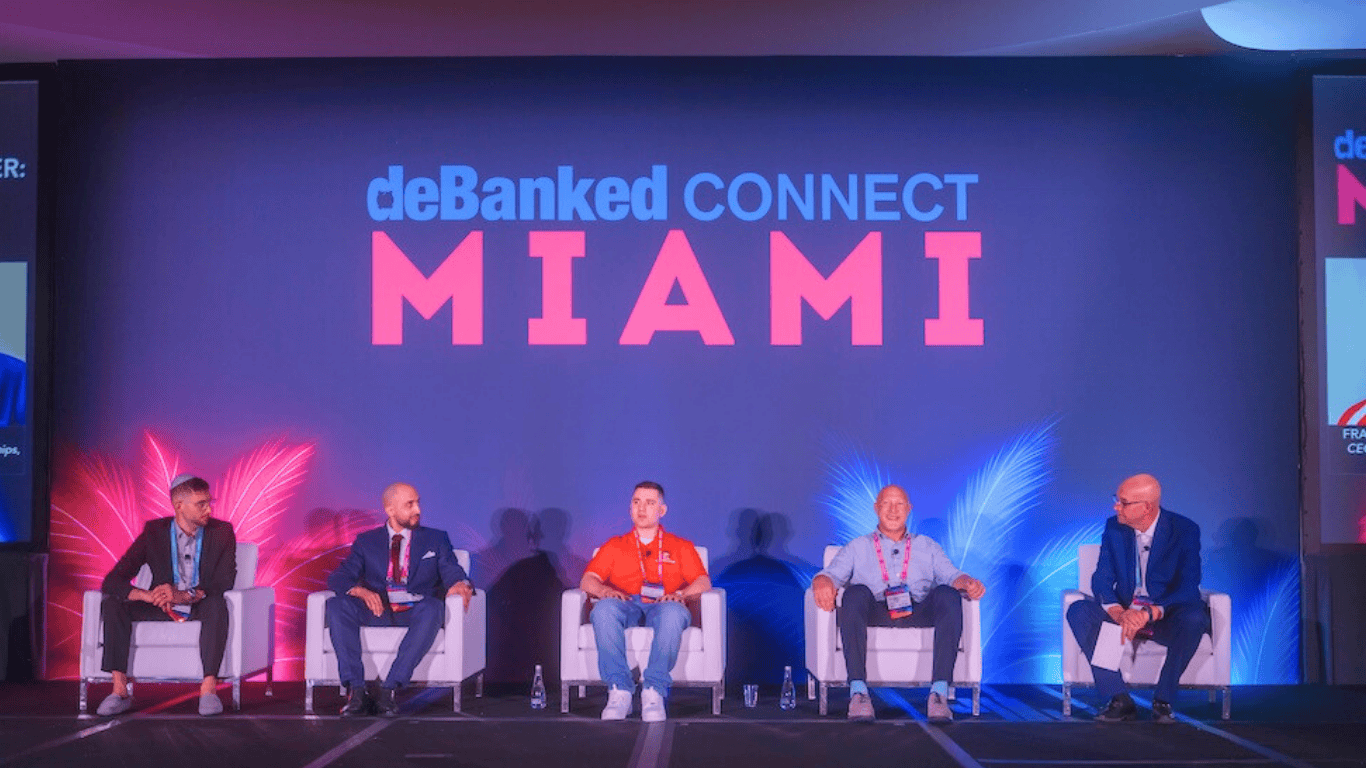For alternative business lenders and institutional finance executives, the imperative for robust fraud detection has never been more acute. In a landscape where speed of decision-making often dictates market leadership, compromising on due diligence is simply not an option. This is where Cobalt Intelligence's suite of API-driven services becomes an indispensable asset, enabling you to seamlessly integrate multi-layered risk assessment directly into your existing operational framework.
Cobalt Intelligence offers an array of RESTful API endpoints, specifically designed to automate and enhance your business verification processes, thereby turbocharging your fraud detection capabilities. By leveraging these powerful tools, you can transform manual, time-consuming checks into instantaneous, intelligent insights, dramatically reducing your exposure to fraudulent applications and bolstering your compliance posture. Let's explore how you can strategically implement Cobalt's RESTful API endpoints into your current workflow.
Understanding Cobalt's Strategic API Offerings
Before diving into implementation, it's crucial to grasp the breadth and depth of Cobalt's API services, each a vital layer in your fraud prevention shield. These aren't just standalone tools; they are interconnected components designed to provide a holistic view of business legitimacy and risk.
- Secretary of State (SOS) API: The bedrock for verifying business registration details, operational status, and key personnel directly from official state sources. This is paramount for uncovering entities that are unregistered, dissolved, or otherwise illegitimate.
- TIN Verification API: A critical check for confirming that a business's Tax Identification Number (TIN) or Employer Identification Number (EIN) accurately matches IRS records, a fundamental step in preventing identity fraud.
- UCC Filing Data API: Provides crucial insights into a business's financial obligations by revealing existing Uniform Commercial Code (UCC) liens, essential for detecting undisclosed debts or attempts at double-financing.
- OFAC Sanctions Check: Automates the screening of businesses and individuals against the OFAC Specially Designated Nationals (SDN) list, ensuring compliance with global sanctions laws and preventing engagement with prohibited entities.
- Court Data: Offers access to court records in specific jurisdictions (currently New York State and Miami-Dade County), providing an additional layer of diligence for identifying potential litigation risks.
- Contractor License Verification: For specific industry needs, this API validates contractor licenses at the state level, mitigating risks associated with unlicensed operations.
By combining these data points, your system gains a panoramic view, making it significantly harder for fraudulent actors to slip through the cracks.
Step 1: Gaining Access and Strategic Preparation
Implementing Cobalt's APIs begins with establishing access and preparing your team for integration.
- Initiate with a Risk-Free Trial: Cobalt Intelligence offers multiple avenues to experience its power without immediate financial commitment. You can create a free account for immediate API usage to test specific use cases, or schedule a free demo call for a personalized walkthrough. This hands-on experience is invaluable for your development and risk teams to understand the data structure and potential applications within your unique lending workflow.
- Proposition Detail 1: Accelerate Proof-of-Concept: The free trial and demo calls allow your technical and risk teams to rapidly test the APIs' capabilities against your own data, confirming their utility in your specific fraud detection scenarios without incurring costs or lengthy procurement cycles. This rapid validation fosters internal buy-in and streamlines the path to full integration.
- Proposition Detail 2: Tailored Solutions Discussions: During demo calls, you can directly discuss your specific needs, pain points with current data retrieval, and the volume of lookups you anticipate. This allows Cobalt to provide tailored recommendations, ensuring the API implementation is optimised for your operational scale and fraud prevention objectives.
- Proposition Detail 3: Transparent Pricing Model: Cobalt operates on a clear, usage-based monthly subscription model where you pay for credits or lookups. The cost per lookup decreases as your volume increases. This transparent structure allows for predictable budgeting and scalability, ensuring that as your lending volume grows, your verification costs remain efficient.
- Obtain Your API Key: Once you're ready to proceed, you'll sign up for an account and obtain an API key. This key is fundamental for authenticating your requests and tracking your usage, ensuring secure and controlled access to the data.
Step 2: Reviewing Documentation and Strategic Testing
Successful API integration hinges on thorough understanding and meticulous testing.
- Immerse in Comprehensive Documentation: Cobalt Intelligence provides comprehensive API documentation. This includes endpoint descriptions, expected request and response formats, authentication methods, and sample code in various programming languages. Your development team will find this invaluable for a smooth integration process.
- Proposition Detail 1: Accelerate Developer Onboarding: Well-structured documentation significantly reduces the learning curve for your development team, allowing them to quickly understand how to interact with the APIs and integrate them into your existing tech stack, thus speeding up the time to value.
- Proposition Detail 2: Reduce Integration Complexity: By providing clear guidelines on data structures and authentication, the documentation minimises the guesswork often associated with new API integrations, reducing potential errors and ensuring that the data flows correctly into your fraud detection algorithms.
- Proposition Detail 3: Foster Self-Sufficiency: The availability of sample code and detailed explanations empowers your internal teams to handle much of the integration work autonomously, reducing reliance on external consultants and enabling faster iteration on your fraud prevention workflows.
- Leverage the Sandbox Environment: Cobalt offers a sandbox environment for testing API calls without impacting live data. This allows your developers to debug integrations, validate data flows, and ensure that the API responses are correctly parsed and utilised within your fraud detection logic before deployment to production.
- Proposition Detail 1: Minimise Production Risk: Testing in a sandbox environment ensures that any integration glitches or unforeseen data discrepancies are identified and resolved in a controlled setting, preventing disruption to your live lending operations or accidental misflagging of legitimate applications as fraudulent.
- Proposition Detail 2: Optimise Workflow Logic: Developers can use the sandbox to fine-tune the decisioning logic that consumes the API data, ensuring that your automated fraud rules correctly interpret Cobalt's confidence scores and status indicators, leading to more accurate fraud detection and fewer false positives.
- Proposition Detail 3: Cost-Efficient Development: By debugging and refining the integration in a free testing ground, your firm avoids incurring charges for numerous trial-and-error API calls against live data, directly contributing to a more budget-friendly development cycle.
Step 3: Integrating Core API Endpoints for Business Verification
The foundational layer of fraud detection begins with validating the very existence and status of the applying business.
- Implement Secretary of State (SOS) API for Real-Time Validation: Integrate the SOS API to pull real-time business entity details directly from all 50 U.S. states and D.C. Secretary of State portals. This is your primary defence against fictitious or defunct entities attempting to secure funding.
- Proposition Detail 1: Unmasking Ghost Entities and Inactive Businesses: The API's ability to verify active operational status in real-time is critical. If an applicant claims to be an active trading business but the SOS record shows "inactive," "dissolved," or "never registered," this is an immediate and definitive red flag for potential fraud, allowing for automated declines and saving significant underwriting time.
- Proposition Detail 2: Ensuring Data Integrity with Primary Source Documentation: Cobalt's API provides timestamped screenshots of the actual state records, a powerful feature for audit and compliance purposes. This "primary source documentation" offers irrefutable evidence of your due diligence, bolstering your firm's defence against regulatory scrutiny and demonstrating a commitment to authentic data in your fraud detection processes.
- Proposition Detail 3: Navigating Data Inconsistencies with Intelligent Matching and Normalisation: A key challenge with SOS data is its variability across states. Cobalt's API normalises field names and status terms (e.g., converting various state-specific "inactive" terms into a single "inactive" flag) and uses confidence scoring for name matching. This "intelligent matching technology" ensures that even with slight naming discrepancies or user input errors, your system can accurately identify the correct business entity, reducing false negatives and streamlining manual review processes.
- Integrate TIN Verification API for Identity Fraud Prevention: Deploy the TIN Verification API to confirm that the provided business Taxpayer Identification Number (TIN) and business name pairing precisely matches IRS records in real-time.
- Proposition Detail 1: Blocking Impersonation Attempts: This foundational check is paramount for preventing identity theft and ensuring you are dealing with a legitimate, registered entity from the very outset. A mismatch between the declared business name and the TIN is a critical indicator of potential fraud, allowing your system to immediately flag the application for deeper scrutiny or automated rejection.
- Proposition Detail 2: Streamlining KYC and Onboarding: By automating this crucial validation, the TIN Verification API significantly speeds up your Know Your Customer (KYC) and onboarding processes. Reduced manual verification time translates directly into a faster, smoother experience for legitimate applicants, enhancing customer satisfaction while simultaneously fortifying your fraud defences.
- Proposition Detail 3: Enhancing Compliance without Overhead: Accurate TIN verification is a non-negotiable compliance requirement. Integrating Cobalt's API ensures that your initial data collection meets regulatory standards effortlessly, simplifying future audits and reducing the risk of compliance penalties associated with improperly verified entities.
Step 4: Enhancing Risk Assessment with Additional Data Layers
Beyond foundational verification, sophisticated fraud detection requires deeper insights into a business's financial health and compliance standing.
- Integrate UCC Filing Data API to Uncover Hidden Liabilities: Accessing Uniform Commercial Code (UCC) filings from 11 states via API provides instant visibility into a business's secured financial obligations.
- Proposition Detail 1: Detecting Undisclosed Liens and Double Financing: This API allows you to instantly identify existing liens against a business that an applicant might conveniently "forget" to disclose. Uncovering such liens is vital for assessing the true financial risk and can often reveal attempts to secure multiple loans against the same collateral, a common and costly fraud indicator.
- Proposition Detail 2: Improving Collateral Risk Analysis: By clearly identifying secured parties and the specific collateral involved, the UCC Filing Data API enables a far more granular understanding of a business's existing commitments. This detailed insight into financial obligations significantly improves the quality of your risk analysis, empowering more informed credit decisions and preventing exposure to undercollateralised loans.
- Proposition Detail 3: Protecting Your Firm's Position: Proactively checking UCC filings prevents your firm from inadvertently becoming a junior lienholder in a fraudulent double-financing scenario, where a business might obtain credit from multiple lenders against the same assets without disclosing existing debts. This vital check significantly mitigates potential losses and protects your portfolio's integrity.
- Automate OFAC Sanctions Checks for Global Compliance and Security: Integrate the OFAC Sanctions Check API to automatically screen businesses and individuals against the OFAC SDN (Specially Designated Nationals) list.
- Proposition Detail 1: Eliminating Manual Bottlenecks and Human Error: Manual OFAC screening is notoriously slow and prone to human error. Automating this process with Cobalt's API ensures instantaneous screening, eliminating manual bottlenecks and dramatically reducing the risk of inadvertently engaging with sanctioned entities, which carries severe legal and reputational consequences.
- Proposition Detail 2: Fortifying Against Illicit Financial Activities: By identifying potential matches with confidence scores in real-time, the service helps your firm avoid doing business with individuals or organisations involved in terrorism, drug trafficking, or other illegal activities. This proactive screening is crucial for maintaining your firm's integrity and adherence to international Anti-Money Laundering (AML) and Counter-Terrorist Financing (CTF) regulations.
- Proposition Detail 3: Streamlining Regulatory Compliance Workflows: Seamlessly integrating automated OFAC screening into your onboarding and ongoing monitoring processes ensures that compliance is an efficient, automated part of your rapid lending process, rather than a burdensome, time-consuming task. This also provides a clear audit trail for regulatory examinations.
- Consider Court Data and Contractor License Verification (if applicable): For highly specialised lending, integrate Cobalt's APIs for court data (New York State and Miami-Dade County) and contractor license verification.
- Proposition Detail 1 (Court Data): Identifying Legal Risks: Access to court records, particularly in high-risk jurisdictions, can reveal ongoing litigations or past judgments that an applicant might omit, offering another critical layer in assessing overall business risk and detecting potential fraudulent omissions.
- Proposition Detail 2 (Contractor License): Ensuring Industry-Specific Compliance: For lenders in construction or related sectors, verifying contractor licenses ensures that businesses are operating legally and with the necessary credentials. Funding an unlicensed contractor can expose your firm to significant legal and reputational risk, and this API prevents such scenarios.
- Proposition Detail 3: Customised Risk Profiles: These specialised data points allow your firm to build more nuanced and industry-specific risk profiles for applicants, enabling more precise underwriting and significantly reducing fraud vectors tailored to particular business types.
Step 5: Implementing Robust Error Handling and Scalability
A robust API integration is not just about data retrieval; it's about resilient operation and efficient scaling.
- Implement Error Handling with Confidence Scoring and Long Polling: Cobalt's API employs a 'confidence level' indicator (0-1) for name matches, requiring logic to handle various confidence levels. For slower state systems, implement long polling or utilise webhooks/callbacks, where Cobalt provides a token for checking request status asynchronously.
- Proposition Detail 1: Enhanced Accuracy and Reduced False Positives: The confidence score empowers your system to intelligently interpret search results, distinguishing between strong matches and potential ambiguities. This precision ensures that legitimate applications are not inadvertently flagged as fraudulent due to minor data discrepancies, saving valuable review time and improving customer experience.
- Proposition Detail 2: Maintaining Workflow Fluidity Despite Latency: By using long polling or webhooks, your system can continue processing other tasks while waiting for data from slower state websites, preventing bottlenecks and ensuring that the speed of your fraud detection and underwriting workflow is not dictated by external system latencies.
- Proposition Detail 3: Streamlined Dispute Resolution: Clear error messages and confidence scores provide an immediate basis for investigation if a verification fails or a match is ambiguous, accelerating the resolution of problematic applications and allowing your fraud analysts to quickly pinpoint areas of concern.
- Leverage Caching and Batch Processing for Efficiency and Resilience: Cobalt maintains a database cache covering approximately 70-80% of U.S. businesses for faster responses. You can opt to query the cache first, and if a live data request fails due to a state website being down, Cobalt automatically attempts to retrieve data from its cache. The API is also equipped for batch processing for thousands of lookups daily.
- Proposition Detail 1: Optimised Speed and Performance: For routine or less time-sensitive checks, querying the cache first significantly expedites data retrieval, ensuring that a high volume of verification requests can be processed almost instantaneously. This speed is crucial for high-throughput lending platforms like 1West, which processes over 5,000 loan submissions monthly.
- Proposition Detail 2: Enhanced System Resilience and Business Continuity: The automatic failover to cached data if a live state website is unresponsive ensures uninterrupted service for your fraud detection workflows, even during external system outages. This robust redundancy is critical for maintaining consistent operational integrity and preventing unexpected delays in your lending pipeline.
- Proposition Detail 3: Efficient Portfolio Monitoring: Batch processing capabilities allow for efficient, large-scale verification for portfolio reviews, meaning you can proactively monitor the status of your existing borrowers, identify any changes in their operational legitimacy (e.g., a business becoming inactive), and flag potential emerging risks without a significant manual overhead.
- Plan for Scalability with Tiered Pricing: Cobalt's pricing model is usage-based, with costs per request decreasing as your volume increases. This structure is inherently designed for scalability.
- Proposition Detail 1: Cost-Effective Growth: As your lending operations expand and your need for verification increases, the decreasing cost per lookup ensures that your fraud detection capabilities remain economically viable, supporting aggressive growth strategies without disproportionately increasing operational expenses.
- Proposition Detail 2: Flexibility for Fluctuating Demand: The usage-based model accommodates fluctuations in loan application volumes, allowing your firm to pay only for the verification services it consumes, providing financial agility in dynamic market conditions.
- Proposition Detail 3: Future-Proofing Your Fraud Stack: The ability to scale seamlessly means your fraud detection system can keep pace with market demands and internal expansion, preventing future bottlenecks in your verification processes as your firm captures greater market share in the alternative lending space.
Step 6: Leveraging Synergy for a Holistic Fraud Prevention Ecosystem
The true strategic advantage of Cobalt's APIs emerges when these individual services are integrated to create a synergistic, holistic fraud prevention ecosystem.
- Enable Cross-Referencing for Multi-Dimensional Validation: Design your workflow to cross-reference data from multiple Cobalt API sources and your existing internal data. For instance, if an applicant provides a TIN that verifies with the IRS, but the SOS API shows the business is inactive, or a UCC lien appears that was not disclosed, these immediate inconsistencies act as powerful fraud indicators.
- Proposition Detail 1: Uncovering Sophisticated Fraud Rings: Fraudsters often rely on exploiting weaknesses in single-point verification systems. By cross-referencing multiple data points from IRS, SOS, and UCC records, your system can identify complex patterns of deception that might otherwise go unnoticed, such as businesses using legitimate TINs but operating under false pretences or with undisclosed financial liabilities.
- Proposition Detail 2: Building a Comprehensive Risk Profile: The combined insights from diverse data sources allow your system to construct a far more comprehensive and accurate risk profile for each applicant. This multi-dimensional approach empowers your underwriting team to make decisions based on a complete picture of legitimacy, operational status, and financial health, significantly reducing the likelihood of funding fraudulent ventures.
- Proposition Detail 3: Automating Intelligent Flagging: Your system can be configured to automatically flag applications where discrepancies between different data layers are detected, such as a mismatch between the registered agent on SOS data and other provided contact details, or new UCC filings appearing after an initial application, allowing your fraud investigation team to focus their valuable expertise on high-risk cases.
- Streamline Operations with Automated Decisioning and Workflow Acceleration: By automating these multi-source checks, Cobalt enables lenders to dramatically streamline their underwriting and KYC processes.
- Proposition Detail 1: Dramatic Reduction in Processing Time: The ability to perform hundreds to thousands of lookups daily means systems can automatically score applications and identify inactive businesses for auto-decline, freeing up processing teams from manual tasks. This efficiency, as demonstrated by 1West, who achieved 25% self-service rates and significantly reduced loan processing time, directly translates into faster, more secure lending decisions.
- Proposition Detail 2: Enhanced Operational Bandwidth: Automation of verification tasks frees up your valuable human resources to focus on complex cases, customer relationship management, or strategic growth initiatives, rather than tedious data entry and manual cross-referencing. This re-allocation of talent directly boosts overall operational efficiency and profitability.
- Proposition Detail 3: Improved Customer Experience and Conversion Rates: Faster processing times and a more seamless onboarding experience, where legitimate applicants can self-service their way through the application process without human intervention, directly enhance customer satisfaction and conversion rates. This competitive advantage in service delivery is crucial in the fast-paced alternative lending market.
Real-World Impact: Success Stories in Action
The tangible benefits of integrating Cobalt Intelligence's multi-layered risk assessment are best illustrated by the success of alternative lenders already leveraging these APIs:
- 1West: This leading small business financing marketplace integrated Cobalt's SOS API into their Automated Business Lending Engine (ABLE). They process over 5,000 full loan submissions monthly and achieved "more than 90 percent" data verification accuracy for business names, addresses, and start dates. This dramatically improved operational efficiency, reduced fraud for their lending partners, and led to a remarkable 25% self-service rate for customers. Kunal, CEO of 1West, affirmed that Cobalt helps verify file data to reduce fraud and maximise approval chances.
- General Merchant Funding: With over 14 years in alternative business finance, General Merchant Funding transformed their underwriting process through Cobalt's integration. The system now automates Secretary of State verification, real-time EIN verification, and seamlessly integrates judicial searches, which were previously lengthy manual tasks. This ensures they deal with verifiable businesses from the start, preventing wasted effort on problematic applications.
- Bectran: A leading credit and accounts receivable management platform, Bectran integrated with Cobalt Intelligence to enhance their fraud prevention capabilities. The collaboration equips credit managers with real-time SOS data at the moment of application submission, resulting in tighter fraud security measures and faster credit approvals. They now automatically pull SOS data alongside credit applications, score applications based on verification data, and provide screenshots for enhanced audit trails, even enabling automatic declines for inactive businesses.
These case studies unequivocally demonstrate that Cobalt's multi-layered approach is not merely a theoretical advantage but a proven, impactful solution for fortifying fraud detection in your lending ecosystem.
Conclusion: A Strategic Imperative for Competitive Advantage
For discerning alternative business lenders and institutional executives, the question is no longer if to enhance fraud detection, but how to do so with maximum efficiency and efficacy. Implementing Cobalt Intelligence's RESTful API endpoints provides a clear, actionable pathway to achieving this critical objective.
By adopting a multi-layered verification strategy—beginning with foundational identity checks like TIN and SOS data, extending to financial obligations with UCC filings, and ensuring compliance with OFAC sanctions—your system transforms into an impenetrable bulwark against fraudulent activities. The seamless integration, real-time data access, intelligent matching, and robust scalability offered by Cobalt's APIs not only reduce your risk exposure but also dramatically streamline your operations, accelerate decision-making, and enhance the overall customer experience.
Embrace this transformative technology. By integrating Cobalt's intelligent verification tools, you're not just improving fraud detection; you're securing a formidable strategic advantage in the dynamic world of alternative lending.












.png)